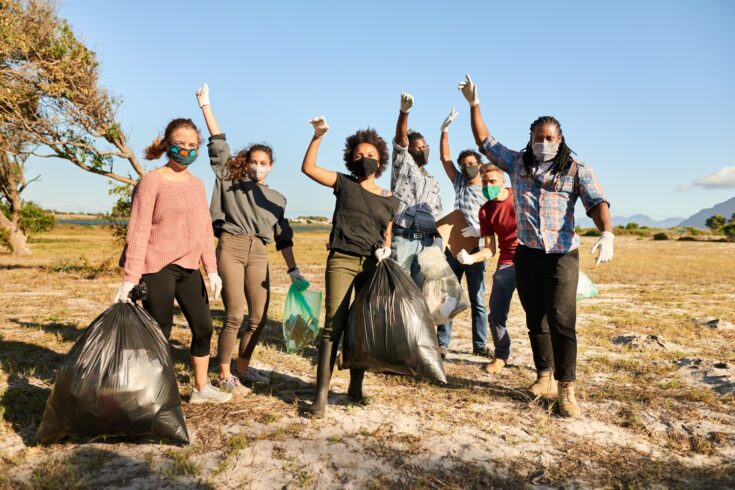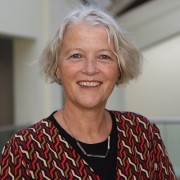Nature and the environment are the bedrock of our planet, which is facing a triple crisis of climate change, biodiversity loss and pollution. Land degradation has reduced the productivity of nearly one-quarter of the global land surface, impacted the wellbeing of about 3.2 billion people and cost about 10% of annual global gross domestic product in lost ecosystem services.
Protecting and restoring nature is vital for the health, wellbeing and prosperity of people and planet. A healthy, biodiverse environment provides win-win outcomes by increasing our resilience to a changing climate while offering many other benefits for people, such as natural resources for livelihoods, clean water, fresh air, green spaces for mental health and resources for future generations. The linkages between nature loss, climate change, health, food security, economic security and prosperity have never been clearer.
Halting and reversing destruction of nature
The Kunming-Montreal Global Biodiversity Framework agreed in December 2022 was a landmark moment for nature. It aims to catalyse, enable and galvanise transformative action to halt and reverse the destruction of nature.
The Framework recognises that to achieve the Sustainable Development Goals, a healthy environment is absolutely vital. That’s why the UK has led the charge on action for nature, committing £3 billion of international climate finance to solutions that protect and restore nature and biodiversity.
Equitable partnerships with other leading science nations
The UK recognised in the 2030 Strategic Framework that the UK is home to world-class science and research and a world leader in natural sciences. We recognise the need to accelerate the green economy by supporting research and innovation that unlocks solutions essential to achieving net zero through equitable partnership with other leading science nations. Further, the UK’s Integrated Review Refresh highlights that delivering science and research in partnership with low and middle-income countries is key to enhancing global resilience.
The UK recognises that to address the pressing needs of nature we need to be delivering strong, effective science and research on how to protect, manage and restore nature and that this requires effective international partnerships and coordination to maximise impact. Strong partnerships from the local to national and national to global are needed to strengthen understanding and, importantly, implementation.
Benefiting both people and nature
The Foreign, Commonwealth and Development Office’s (FCDO) Reversing Environmental Degradation in Africa and Asia (REDAA), Department for Environment Food and Rural Affairs’ (Defra) Global Centre on Biodiversity for Climate (GCBC), and UK Research and Innovation’s (UKRI) Equitable nature-based climate resilience in Sub-Saharan Africa programmes are working together to coordinate research to find solutions to climate change that benefit both people and nature in the Global South. Each programme has engaged with stakeholders in their regions of interest to ensure that the research priorities are aligned with local level needs.
The Adaptation Research principles advocated by the Adaptation Research Alliance, which include responding to local needs and priorities, are at the heart of the approach. Science and research supported by all three programmes will touch upon three overlapping themes to inform climate adaptation and mitigation measures:
- sustainable natural resource management
- governance, business, and finance mechanisms
- nature-based solutions for people, nature and climate
These will be underpinned by cross-cutting themes of gender equality and social inclusion, and locally-led action.
Professor Duncan Wingham said:
UKRI is pleased to be working with FCDO and Defra to support impactful research that will build resilience to climate change in Lower and Middle-Income Countries.
Working together with other UK government depts to ensure complementarity and identify synergies between the programmes will allow for greater coherence and coordination of investments in this space.
Professor Charlotte Watts said:
Filling the evidence gaps and building the practical research and action partnerships necessary to address critical climate and biodiversity challenge is in everyone’s interests.
The UK government and FCDO hope that, through these impact focused research calls, with UKRI and Defra, our collective research resources will deliver the ecosystem restoration and resilience necessary for sustained impact.
Details of applying for funding available now
Further details about the REDAA funding opportunity can be found on the REDAA website.
The GCBC funding opportunity launches on 25 May 2023, with details available on the GCBC website.
The UKRI-led ‘Equitable Nature-based Climate Resilience in SSA’ programme will launch in early June 2023: information will be available on the UKRI funding finder.
This unique set of complementary international programmes provides members of our research communities an opportunity to apply for the funding opportunity that best aligns with their expertise and research interests.
FCDO, Defra and UKRI will continue coordinating across the programmes to maximise synergies. Successful applicants will benefit from this, through collaborative learning events and lesson sharing across projects. This will drive greater impact and support having nature at the heart of successful international development.
Top image: Credit: AJ_Watt, E+ via Getty Images








